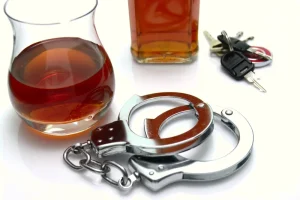
After much consideration, he eventually joined an alcohol treatment program as I helped him grieve his wounds and manage his anger. They were also required to respond to the Consideration of Future Consequence Scale (CFC). It was found that those scoring lower became significantly more aggressive than those who had higher ratings on the CFC.

How Anger and Alcohol Contribute to Domestic Violence
- Anger can serve as a protective emotional response to underlying feelings of vulnerability, fear, or sadness that emerge as one confronts past actions and the recovery journey at large.
- Additionally, you have everyday stresses that do not care that you’re trying to quit drinking, and it all feels like a bit much, especially in the first month of sobriety.
- This was a massive study of 33,215 individuals with no history of active military combat.
- And as they say, “if you don’t use it, you lose it.” When you rely primarily on alcohol to get you through your challenges, other coping strategies eventually atrophy.
- These emotions can become heightened in potentially extreme ways.
Dealing with the various challenges of recovery can be frustrating. Alcohol use and anger can both be treated using psychotherapy approaches rooted in cognitive behavioral therapy (CBT). If you find yourself in a situation with someone who is angry while intoxicated, the first step is to assess your level of risk. There’s a difference in safety between someone who is expressing anger verbally and one who has become physically aggressive. Anger expression may also be confused with aggression or hostility, two consequences of drinking commonly cited in research.
Snarky and Sober? Letting Go of Resentment and Anger in Recovery

It is characterized by the avoidance of confrontation and expressed through sarcasm or deceitful acts. It can also be characterized by procrastination at work or by mocking others. It can be hurtful, and often others do perceive your aggressive behavior even if you think it’s sneaky. To avoid passive-aggressive anger, learn assertive communication techniques. Try to articulate your frustration with others so that problems can be solved.
Typical Risk Factors for Alcohol-Related Aggression
You might be quick to judge people and immediate label them as “bad” or “dumb.” To avoid this type of anger, try to look from the other person’s perspectives. Really try to examine a situation before coming to a conclusion. Judgmental anger can prevent you from being useful to others and having a rewarding recovery. There are multiple reasons why you may experience increased feelings of anger after quitting alcohol – let’s explore three of the most common. Discover the ways your anger reveals itself and how you know when you are angry. Are you in the habit of denying your feelings of anger and hiding those feelings?
- Typically, support groups have professional leaders, like social workers or psychologists, so you can ensure you’re getting expert advice.
- Any process of personal transformation is a bit of an experiment.
- This technique is simple yet effective for when anger starts to feel overwhelming.
- Addiction recovery and anger are often uneasy partners, but that does not mean recovery is impossible.
- After much consideration, he eventually joined an alcohol treatment program as I helped him grieve his wounds and manage his anger.
- Interrupting the anger response after recognizing it early can help you manage angry feelings before they result in inappropriate actions.
Fortunately, people who become irrationally mad when drunk can work to prevent and treat their behavior. What are some positive things that you can do after you have done your accessing, recognizing, and list-making? There are actually several things you can do to help yourself when anger and abstaining from alcohol have taken a toll. Join Recovery Connection in celebrating your recovery with our sobriety calculator. If you’re having a hard time right, please know that it DOES get better.
Intimate partner violence is of great concern when it comes to alcohol and anger. Violence can occur in marriages, long-term partnerships, and dating relationships. Alcohol impairs cognitive function, which means it is more difficult to problem-solve, control anger, and make good decisions when drinking. Decreased cognitive function also means it’s more likely for you to misread a situation and overreact. For example, if you’re intoxicated, you might perceive someone bumping into you by accident as a provocation and respond aggressively. An earlier study found that alcohol use enhanced aggression primarily among individuals who showed a heightened disposition for such behavior (Eckhardt and Crane, 2008).

When they come out, others notice them because they’re not a part of the everyday social experience. Among the many studied physiological and behavioral effects of alcohol is disinhibition, or reduced control over impulses or urges after intoxication. Disinhibition can make you unable to suppress or change an act of aggression that is not appropriate for the situation you’re in. An aggressive drunk may make poor decisions that lead to worse scenarios.
Different Approaches to Emotional Regulation in Recovery
The good news is, many of the same tools that will support your sobriety will also help you process and cope with anger. The following are some tips on handling anger as you work towards your goals. Distract MePeople faced with milder negative emotions, on the other hand, would not block them out. These emotions would be regulated by a second cognitive mechanism, which applies more elaborate processing to these unpleasant feelings in an effort to render them harmless.
- The challenge of this stage is to essentially develop and maintain healthy life skills that will serve you for a lifetime.
- While the abstinence stage of withdrawal causes mostly physical symptoms, post-acute withdrawal is very psychological and emotional.
- Such symptoms are often related to mood and may include irritability, anxiety, depression, sleep problems, and fatigue.
- It’s sometimes easier for angry people to become aggressive when they’re inebriated.
- It can alienate you from making friends and strain relationships.
- If you’re looking for help getting started, it’s wise to speak with your physician first.
Alcohol can provoke different emotional responses for different people. If you have a natural tendency to be angry, drinking alcohol may cause you to become aggressive. Over time Ryan came to better understand factors that contributed to his alcoholic rage syndrome drinking, including his anger and increased aggression when drinking. Therapy assisted him in recognizing how past wounds contributed to his vulnerability to both anger and alcohol use.
The Importance of Good Nutrition in Addiction Recovery
Teach yourself not to engage with these feelings and, instead, DISTRACT with whatever tool you use to get through the tough days. These tools could be exercise, prayer, meditation, or AA meetings. This stage typically starts 3–5 years after you’ve stopped drinking. People often need to address past trauma or familial issues during this time. While the abstinence stage of withdrawal causes mostly physical symptoms, post-acute withdrawal is very psychological and emotional.
